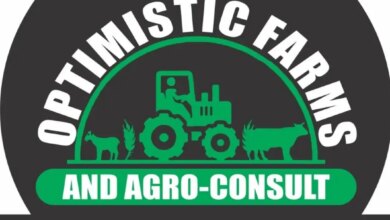
National Agricultural Land Development Authority (NALDA) has announced a renewed drive to generate high-integrity carbon credits through its network of farm estates, a move it said will accelerate rural wealth creation and support the push toward a middle-income economy.
Speaking during NALDA’s COP30 side event in Belém, Brazil, Executive Secretary/Chief Executive Officer, Engr Cornelius Adebayo, described the initiative as a climate intervention and a socio-economic strategy to empower farmers.
Under Renewed Hope Mega Farm Estates programme, he said NALDA will allocate five hectares to each farmer, giving them a sustainable source of income while allowing them to earn from carbon credits generated through structured tree-planting and reforestation efforts across the estates.
The executive secretary said the estates, which range from 5,000 to 25,000 hectares, function as mechanised agricultural settlements with access roads, irrigation systems, processing hubs, energy infrastructure, and perimeter fencing lined with climate-resilient trees planted to produce certified carbon removals.
The executive secretary said the estates, which range from 5,000 to 25,000 hectares, function as mechanised agricultural settlements with access roads, irrigation systems, processing hubs, energy infrastructure, and perimeter fencing lined with climate-resilient trees planted to produce certified carbon removals.
“We want to move Nigerians from a low-income bracket to a middle-class economy. By combining agricultural productivity with carbon-credit earnings, farmers can become independent, prosperous and globally competitive.”
“We want to move Nigerians from a low-income bracket to a middle-class economy. By combining agricultural productivity with carbon-credit earnings, farmers can become independent, prosperous and globally competitive.”
At the event, NALDA also showcased its Plantation Carbon Roadmap, which brings over 20,000 hectares of restored and rehabilitated plantations under rigorous Monitoring, Reporting and Verification (MRV) protocols, ensuring transparency and global credibility in the voluntary carbon market.
He added that NALDA is building a carbon-credit framework that uplifts communities”, he said.
“Every credit earned must translate into improved incomes, restored landscapes, and strengthened food systems. That is the value we bring to global climate action.”


